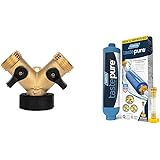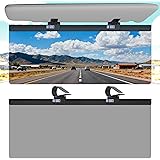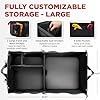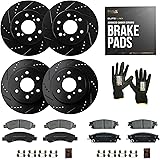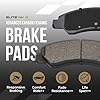Table of Contents

Suppose you are driving down the highway in your sports car and your engine is roaring with what could be your new favorite sound, and everyone is looking at you. Sounds cool, right?
In the world of auto enthusiasts, a sports car means more than just going fast – it’s a badge of our love for cars; these Hot Wheels can get expensive, making them nothing more than a pipe dream for most people on a budget.
But here’s the good news – figuring out how to afford a sports car doesn’t mean you have to be rolling in dough.
You can now make that dream sports car yours by following some smart savings tips and budgeting know-how. And this guide shows you how.
Why Buy A Sports Car?

Exceptional Performance:
A sports car is designed for performance! Quick acceleration thanks to powerful engines and superior handling means there’s no other type of vehicle that drives like these do; they can take sharp turns better, accelerate faster, and give drive control not found in larger vehicles.
Stunning Design:
Sports cars also stand out because of their appearance – sleek contours catch eyes whether driving down city streets or sitting parked on curbsides across town!
Every little detail matters when designing these machines with beautiful lines from front fenders back through rear haunches where tail lights wrap around giving off just enough visibility during nighttime hours without being too flashy during daylight ones.
Emotional Connection:
The joy of owning one isn’t just about having another mode of transportation; it’s about becoming emotionally attached to them as well! It’s an adrenaline rush steering through tight corners top-down feeling power underfoot listening to exhaust notes bounce off freeway walls.
While going fast enough where wind noise becomes drowned out by engine sounds alone – things like this are only possible in cars like ours here today.
Status Symbol:
Sports cars are not just cars; they are status symbols as well. In addition to their performance and design, performance cars often represent the owner’s lifestyle and accomplishments. They define success and taste as distinguishing yourself from the crowd.
An Engineering Marvel:
Lastly, we should discuss technology. These racing cars go fast not only because of their large engines that push power to the rear wheels; they also have state-of-the-art engine technology, remarkable infotainment systems, and excellent handling abilities.
Why would anyone settle for anything less than the finest when it comes to enjoying oneself with automobiles?

How To Afford A Sports Car? (Essential Factors to Consider)
Vehicle Cost:
When buying a sports car, the upfront cost is important. Prices range from $30,000 – $300,000 so finding one within your budget shouldn’t be hard if you look around; while cheaper models may start as low as $33K on average!
Auto Loan Rate:
If you’re on a budget but still want that sick ride then getting an auto loan could help. However, keep in mind interest rates affect the overall costs of vehicles so make sure monthly payments remain affordable by comparing them against each other and checking credit scores too.
Loan Duration:
The shorter the loan term, the higher monthly payments will be but lower interest paid over time. So choose wisely when balancing these two factors making sure to select the shortest loan term which still allows for comfortable budgeting.
Insurance costs:
It is important to consider insurance premiums as they can vary greatly by vehicle type and personal driving history.
Before purchasing any car do some research on what insurers charge for coverage related directly to those high-performance ratings associated with these types of vehicles; this way there won’t be any surprises later down the line!
Gas prices:
When considering different models think about how much gas each one guzzles up because let’s face it – sports cars aren’t known for their fuel efficiency!
These babies pack powerful engines that drink more petrol than sedans or compact cars so take into account what percentage point difference might exist between MPG numbers when calculating the overall budget.
Maintenance costs:
Owning a sports car needs routine maintenance. This comprises of regular servicing, changing tires, and checking brakes among other things. These costs accumulate with time.
Driving Option:
Driving a car on track is the best option if you want an adrenaline rush. Nevertheless, track use has its costs; it’s like owning a horse and keeping it in a stable.
Purchasing Second-Hand Sports Cars:
It is better to buy second-hand sports cars. A specialist should do the inspection and one should avoid high-mileage vehicles. One must look out for possible future problems. When properly cared for, they gain value.
Safety features:
Safety is the most crucial thing if you’re picking a sports car. Check out:
- Adaptive Cruise Control
- Emergency Brakes
- Reinforced Bodies
- Airbags
- High-performance Tires
- Efficient Brakes
- Clear Sightlines
- Advanced Lighting
- Blind Spot Monitoring
- Rearview Cameras
These features make driving easier and safer.

Rules of Thumb:
20/4/10 Rule: Your Guide To Affordable Sports Cars
When purchasing affordable sports cars, it is commonly known that the 20/4/10 rule applies.
A good rule of thumb is putting down 20% cost of a car, financing no more than four years (48 months), and ensuring your monthly income does not exceed 10% for all other expenses including insurance, etc.
This way you can afford any sports car without financial strain
Balance Sheet Approach: How Much Do Sports Cars Cost?
So now we know how much are those beasts worth let’s apply the balance sheet approach to our calculations here.
According to this approach, it should be at most 50% of your annual income but again this may seem harsh because the average price for new ones is around $47k.
While the average salary sits at $67k per annum which means that they are already expensive as they can get don’t worry there are still some under $40K which gives same thrill without breaking banks as well so unless aiming for Tesla Model 3 minimum requirement is at least $92,000 p.a.
The 20% Rule: Car Financing Tips for Buying a Sports Car
Another useful tip in financing sports cars is the 20% rule which states that 20 % of your monthly after-tax pay should go towards car expenses such as fuel insurance and maintenance.
So if you make $100k/yr and take home about $5,600/mo then ideally speaking anything up to $1,120 would be affordable but it wouldn’t hurt much to use an affordability calculator to find out what’s best according to your situation.
Second-Hand Sports Cars: A Budget-Friendly Option
In case you need help to afford a cost-effective used car, there is always an option to purchase.
They are much less expensive than new ones yet give one similar experience, hence it is advisable for economy-minded people who want to ride a fashionable vehicle without spending too much.
As such, several used sports cars still work well and therefore buying such a vehicle would be considered as an investment worth considering before they become scarce in the marketplace.
New Sports Cars Vs Used Sports Cars? Pros and Cons

Pros of New Sports Cars:
Cutting-Edge Features:
A new sports car has all the latest features as well as technology. When driving a new sports car it’s very hard to compare this with any other experience; starting from advanced safety systems and ending up with fuel efficiency improvements
Full Warranty:
If you are shopping for a fresh sports car, then you can personalize it as you want. This incorporates paint, indoors, and performance.
Customization:
If you are shopping for a fresh sports car, then you can personalize it as you want. This incorporates paint, indoors, and performance.
Peace of Mind:
Purchasing brand-new sports cars ensures tranquility and freedom from thinking about any history or records of accidents, former keepers as well as other issues which might be associated with them.
You will receive a vehicle straight out of the store therefore there isn’t any need for it to be worked on because everything will still work perfectly well.

Advantages of Used Sports Cars:
Cost Savings:
Instead of a new one, you can purchase a used sports car at a much lower price; therefore, it is the most suitable option for those who are putting money aside for a sports car.
Certified Pre-Owned (CPO) Benefits:
It is expected that certified pre-owned cheap performance cars with extended warranties and a thorough inspection will be found. The benefits are very similar to buying a brand-new vehicle.
Lower Depreciation:
When you buy a second-hand sports car, you avoid the first few years of depreciation which is especially useful if you plan on selling it later.
Insurance Costs:
Since their value is less than new ones, insurance rates on used sports cars are lower. Lower value greatly affects insurance rates.

How Much Do You Need To Make To Afford A $100k Sports Car?
If you want to buy a $100,000 sports car but don’t know how much you need to earn, this might come in handy. Here’s the 20/4/10 rule.
It’s a good guideline for car buyers to follow. It says you need to put down at least 20% of the car’s price, finance it for no more than four years (48 months), and make sure you don’t spend more than 10% of your income on cars.
Now let’s plug in some numbers for a $100,000 sports car:
Here’s how it works for a $100,000 sports car:
- Down Payment (20%): The initial down payment would be $20,000.
- Finance for four years: Assuming an interest rate of 4%, your monthly payment would be approximately $1,812.
- Insurance and Gas: Let’s estimate this at $300 per month.
All together, your total monthly car-related expenses would be approximately $2,112.
To afford a $100k sports car stay within 10% of your gross monthly income or approximately $253,440 annually for a $100,000 sports car.
It’s always best to consult a financial advisor or use a car affordability calculator to get a more accurate estimate. These are rough estimates and may vary depending on your credit score and driving habits.
Best Financing Options For Affordable Sports Cars:

Cash Payments:
No Interest:
When you pay cash for your sports car, you won’t pay interest, unlike financing, where you’ll pay more than the car’s price over time.
Negotiation Power:
If you pay cash, you have more negotiating power. Dealers are frequently more willing to lower their prices when they know they’ll be paid in advance.
No Monthly Commitments:
You won’t have to worry about monthly payments if you don’t take out a loan. This can ease financial stress and help you budget more effectively.
Ownership Pride:
It feels great to own your sports car outright. You don’t need to worry about any bank or dealership demanding payment from you.

Credit Financing:
Preserve Liquid Assets:
With financing, your cash can be used for other expenses or investments which can be especially helpful if you can secure a low interest rate.
Credit Building:
Being on time with your car payments will improve your credit score which may come in handy if you decide to apply for a loan later on.
Extended Budget:
By financing, you open yourself up to more opportunities to buy the car of your dreams. You can afford a more expensive sports car when you can pay through loans compared to cash.
Competitive Rates:
The majority of dealerships provide very good financing rates for sports cars. This is especially true if you have a good credit score but others even offer zero percent financing for some time.

Leasing:
Lower Monthly Payments:
Leases typically come with lower monthly payments than those associated with financing which makes owning and maintaining a sports car more affordable.
Drive Newer Models:
When your lease is complete, you will return the vehicle and lease a new one. This allows you to drive the latest models without committing to ownership.
No Resale Hassles:
Buying a car may be costly but leasing it doesn’t involve selling anything back; all that needs doing is giving it back when ready and then buying something different.
Maintenance Coverage:
Maintenance coverage is often included in lease agreements so that drivers don’t have any surprises or worry about unexpected repair expenses.
Flexibility:
Whether you choose another model after or buy the car at the end of your lease term, leasing offers flexibility unmatched by any other option

Negotiating for a Better Deal:
Negotiating is an important part of buying a car, even when it’s a luxury sports car. Negotiation for better deals could be very helpful in this case. Do your homework right by researching adequately.
Before you go to the dealership, find out the market value of the vehicle and its average selling price.
Share these findings with the dealer so that they may use them as a basis for justifying their offer and ensuring fairness in their deal with you. Such knowledge acts as an effective negotiating tool.
Moreover, it would be wise to discuss financing terms separately from the car price thus avoiding mixing up things or getting confused about which one should favor you between these two.
If the deal does not meet your needs then don’t accept it but also remember that another dealership, another vehicle, and another opportunity will always present themselves where one can get his or her dream sports car at a price within their budgetary limits.
Frequently Asked Questions:
Q: What are the ways that a modest income can afford a sports car?
A: A person can afford a sports car on his/her small salary by being careful about money and budgeting for it. The selection of used or secondhand cars may also reduce the cost of owning them.
To make them more affordable, there are tips on payment plans as well as leasing plans for motor vehicles.
Q: How reliable are used sports cars?
A: In case their previous owners had been good at maintaining them, using these sports cars in question is no doubt reliable.
To ensure the vehicle is in good condition, thorough research should be carried out such as checking its mileage, maintenance history, and condition before you buy a used sports car.
It must be taken to a reputable mechanic to be inspected to determine its suitability for use.
Q: How does leasing a sports car benefit you?
A: Firstly, monthly payments tend to be lower with leasing than if you were buying out the vehicle. Secondly, when you lease one, you get a new model every several years!
In addition to allowing clients to enjoy all the latest features and technology advancements; many lease agreements also include maintenance covers so that one does not worry about re-sales or disposal when they want an upgrade.
Q: What are some money-saving strategies regarding sports car insurance?
A: Having no tickets can cut down on sports car insurance charges. Also, picking much higher deductible rates can keep your premiums low but note that you will have to pay more money from your pocket if things go wrong.
Discounts could be available for combining your auto coverage with a homeowner’s or renter’s insurance policy.
Another way of ensuring this is through shopping around and comparing quotes from various providers.
Q: What benefits do I get if I upgrade my Sports Car Performance?
A: By improving performance of your sportscar through investing in performance upgrades, your driving experience will absolutely undergo a change.
The vehicle’s performance can be improved by such performance enhancements as suspension systems, braking systems and exhaust systems while the aesthetics may be enhanced.
It is worth considering the cost of these upgrades and their benefits as well as your budget whilst thinking about introducing them. Some additions might even enhance the resale value of the car.
However, it is important to carefully consider the advantages and disadvantages of modifications since some may cancel any warranty on your automobile.
Conclusion:
It’s not impossible to own your dream sporty vehicle on a limited income; plan financially, research thoroughly, and shop smartly.
Also, it should be noted that there are benefits unique to each method whether financing with cash or credit or leasing one.
You need to know where you stand financially when wanting ownership over any type of automobile like this so do some digging into what works best given these steps which will allow for success.

